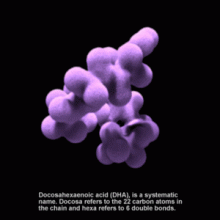Twelve months of daily doses of omega-3 fatty acids resulted in substantial improvements in chronic heart failure, according to a randomized, placebo-controlled study of 133 patients with mild to moderate chronic heart failure due to nonischemic dilated cardiomyopathy.
The study, published Jan. 5 in the Journal of the American College of Cardiology, demonstrated improvements in left ventricular ejection fraction, peak oxygen uptake (VO2), exercise duration, and New York Heart Association functional class among patients taking about 5 g of omega-3 polyunsaturated fatty acids (PUFAs) daily for 1 month followed by another 11 months of 2-g daily doses (J. Am. Coll. Cardiol. 2011;57 [doi:10.1016/ j.jacc.2010.11.017]).
"These beneficial effects suggest that omega-3 PUFAs may favorably affect cardiac remodeling and the decline of myocardial function in patients with [heart failure (HF)] and may account for the reduction in cardiovascular hospitalizations and hospitalizations for HF observed in our study," wrote Dr. Savina Nodari of the University of Brescia [Italy], and colleagues. "However, whether omega-3 PUFAs exert similar effects in patients with HF caused by other etiologies, at more advanced stages, or who are not receiving evidence-based therapy remains to be verified."
At the end of 12 months, patients taking omega-3 PUFAs experienced a 10.4% average increase in left ventricular ejection fraction, compared with a decrease of 5.0% among patients taking placebo. Peak VO2 increased 6.2% in patients taking omega-3 PUFAs, while decreasing 4.5% among patients taking placebo. Patients taking omega-3 PUFAs showed a 7.5% increase in exercise duration, while those taking placebo showed a 4.8% decrease. Finally, average New York Heart Association (NYHA) functional class decreased from 1.88 to 1.61 in patients taking the active supplement, while patients taking placebo showed an increase in NYHA functional class from 1.83 to 2.14. All these differences were statistically significant.
The difference between the groups in all-cause hospitalizations (27% of the patients in the PUFA group vs. 42% of placebo patients) did not reach statistical significance, but there were significant differences in cardiovascular-related hospitalizations (15% vs 39%) and in HF-related hospitalizations (6% vs. 30%).
The authors stated that there were no serious adverse events in either group, and there were no discontinuations due to noncompliance, as judged by pill counts.
The study was funded by the University of Brescia, Brescia, Italy. One of the study’s coauthors (Dr. Mihai Gheorghiade of Northwestern University, Chicago) acknowledged consulting for, and receiving travel funds from, a number of pharmaceutical and device manufacturers. The other coauthors stated that they had no conflicts.

